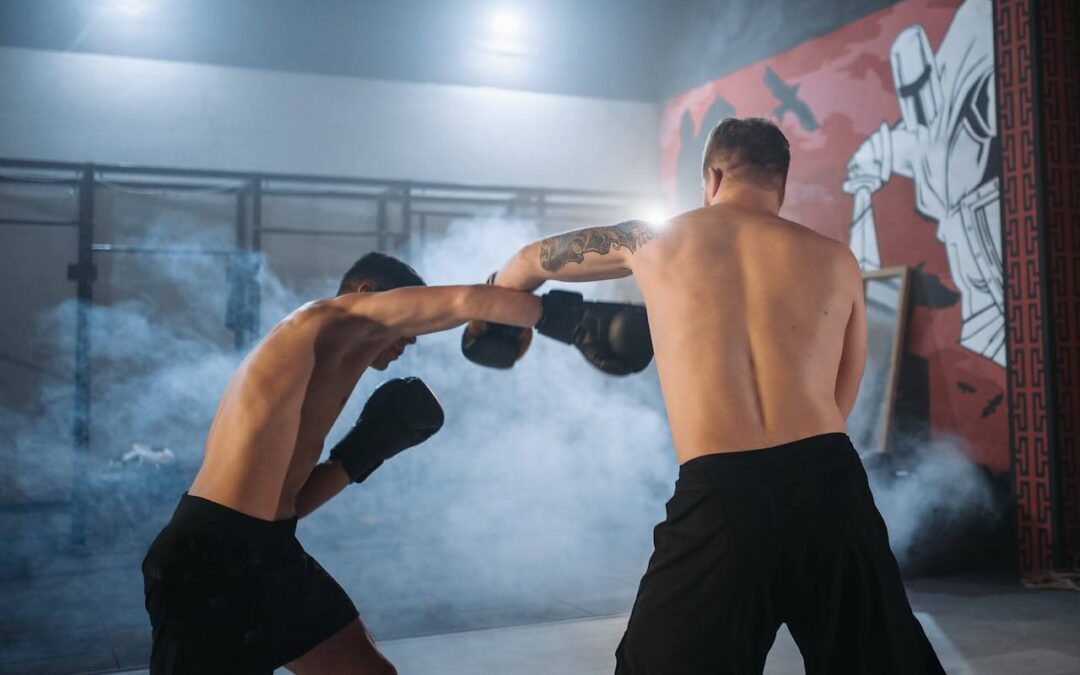Welcome to the definitive blueprint for transforming into a force to be reckoned with inside the cage – whether you’re a seasoned MMA veteran or a budding contender hungry for success. In this article, we’ll delve deep into the intricacies of designing an effective training program to enhance your performance in the fast-paced world of mixed martial arts. Whether you’re a seasoned professional or just stepping into the octagon, understanding the nuances of strength and conditioning can make all the difference in your success as an MMA fighter. So, buckle up and get ready to elevate your game to the next level!
Understanding the Demands of MMA
Before diving into the specifics of training, it’s crucial to grasp the unique demands of MMA. Unlike traditional sports, MMA requires a diverse skill set encompassing striking, grappling, and endurance. As such, an effective training regimen must address the multifaceted nature of the sport while mitigating the risk of injury and overtraining. Please read my previous post on MMA Strength and Conditioning here for more details.
Crafting a Comprehensive Training Program
What are the key components of an MMA-specific training program?
To build a training program tailored to the demands of MMA, it’s essential to incorporate a blend of strength training, conditioning, and skill-specific drills. This holistic approach ensures that you’re not only physically prepared but also proficient in the technical aspects of the sport.
How can periodisation optimise training outcomes for MMA fighters?
Periodisation, the systematic manipulation of training variables over time, is a cornerstone of effective programming for MMA fighters. By strategically alternating between phases of high volume and intensity, athletes can peak at the right time while minimising the risk of burnout.
What role does strength and conditioning play in injury prevention?
In a sport as physically demanding as MMA, injury prevention is paramount. A well-designed strength and conditioning program can help reduce the risk of common injuries by improving muscular strength, endurance, and joint stability.
How can strength training enhance performance in MMA?
Strength training forms the foundation of any MMA fighter’s regimen, providing the raw power necessary to execute strikes, takedowns, and grappling maneuvres with maximum efficiency. By focusing on compound lifts and functional movements, athletes can develop the strength and explosiveness needed to dominate in the cage.
What are the best exercises for MMA fighters?
From squats and deadlifts to plyometric drills and kettlebell swings, the list of exercises beneficial for MMA fighters is extensive. By incorporating a diverse range of movements into your training routine, you can target different muscle groups while improving overall athleticism.
How can conditioning drills improve endurance and stamina?
Endurance is a critical component of MMA performance, particularly in longer fights or intense training sessions. Incorporating aerobic and anaerobic conditioning drills, such as sprints, circuits, and interval training, can help improve cardiovascular fitness and stamina. Here is a sample conditioning workout that I developed with a previous MMA fighter.
What role does nutrition play in supporting training and recovery?
Proper nutrition is the fuel that powers your training and recovery efforts. By prioritising nutrient-dense foods and staying adequately hydrated, you can optimise performance, enhance recovery, and maintain a healthy weight for your weight class.
How do you balance training and recovery to prevent overtraining?
Overtraining can derail even the most well-designed training program, leading to fatigue, injury, and diminished performance. By implementing structured rest days, incorporating active recovery techniques, and listening to your body’s signals, you can strike the right balance between training and recovery.
How can mental training techniques improve performance in MMA?
The mental aspect of MMA is just as crucial as the physical. Incorporating visualisation, mindfulness, and goal-setting techniques into your training regimen can help sharpen focus, build confidence, and cultivate a champion’s mindset.
What are the considerations for training camp preparation?
As you prepare for a fight, your training camp becomes the focal point of your preparation efforts. From fine-tuning your game plan to peaking at the right time, meticulous planning and execution are key to success in the octagon.
Conclusion: Elevate Your Game with Effective Strength and Conditioning
In the high-stakes world of MMA, mastering the art of strength and conditioning is non-negotiable. By understanding the unique demands of the sport, crafting a comprehensive training program, and prioritising recovery and mental preparation, you can maximise your potential as an MMA fighter. So, train smart, stay disciplined, and unleash your full potential in the cage!
Key Takeaways:
- Understand the demands of MMA and tailor your training program accordingly.
- First get the body’s joints working nice!
- Implement periodisation to optimise performance and prevent overtraining.
- Focus on compound lifts, functional movements, and skill-specific drills in your strength training regimen.
- Incorporate a mix of aerobic and anaerobic conditioning drills to improve endurance and stamina.
- Prioritise nutrition, recovery, and mental training techniques to support your overall performance and well-being.
